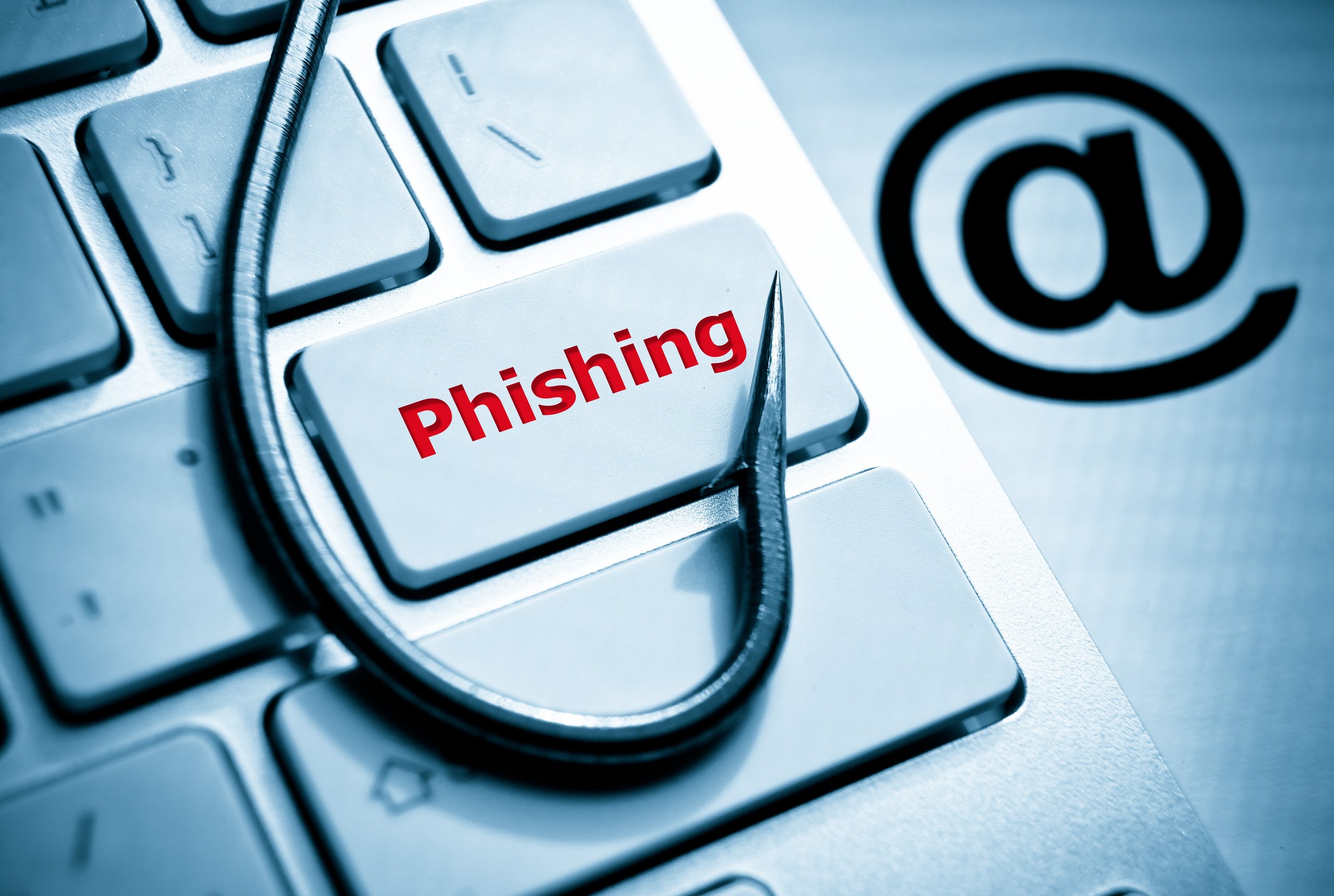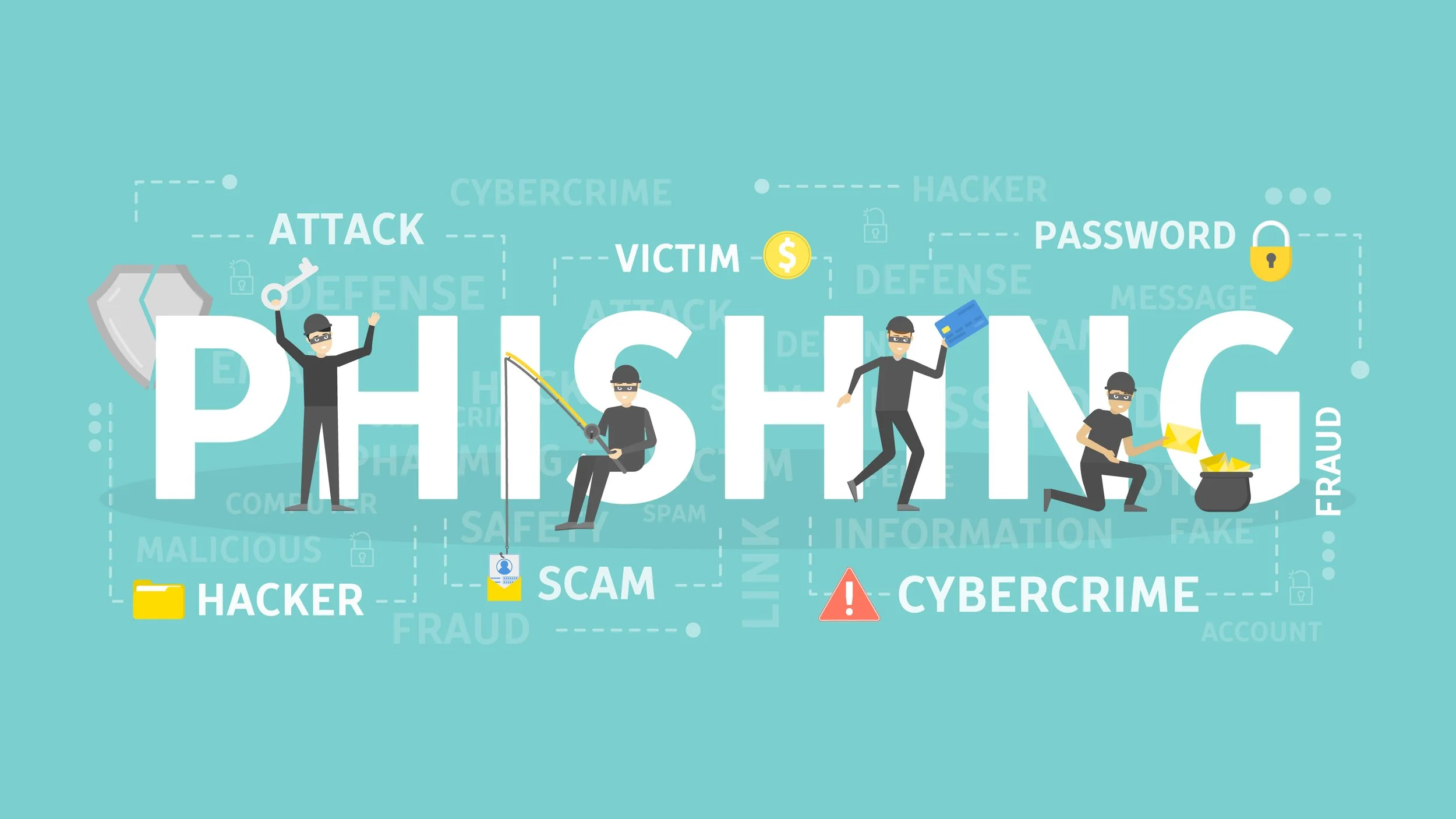PSA: Phishing Awareness Training: Protecting Your Law Firm from Cyber Threats!
/Be aware of “Phishing” as it can jeopardize your office’s cybersecurity!
For October 2024’s Cybersecurity Month, we need to remember that in today's digital age, law firms are increasingly becoming targets of sophisticated cyber attacks, with phishing being one of the most prevalent and dangerous threats. As legal professionals, we handle sensitive client information and confidential data daily, making it crucial to stay vigilant against these malicious attempts. This article will explore the importance of phishing awareness training for law firms and provide practical strategies to safeguard your practice.
Understanding the Phishing Threat Landscape
Phishing attacks have evolved significantly over the years, becoming more targeted and convincing. Cybercriminals often employ social engineering tactics to manipulate unsuspecting victims into divulging sensitive information or clicking on malicious links. For law firms, the consequences of a successful phishing attack can be devastating, potentially leading to data breaches, financial losses, and reputational damage.
The Importance of Comprehensive Training
One key strategy in combating phishing attacks is to conduct regular phishing awareness training sessions. These sessions should educate legal professionals on how to spot and avoid phishing attempts, emphasizing the importance of verifying sender identities and checking for red flags in emails.
Best Practices for Phishing Defense
To mitigate cybersecurity risks and safeguard sensitive information effectively, legal professionals should be trained on the following best practices:
Implement multi-factor authentication and encryption protocols
Encourage a culture of vigilant reporting for suspicious activities
Verify sender identities before responding to emails
Check for red flags such as misspellings or urgent requests for personal information
Avoid clicking on suspicious links or downloading attachments from unknown sources
Effective Training Strategies
“Phishing” is a cyber attack where scammers impersonate legitimate entities to trick individuals into revealing sensitive information, like passwords or financial details.
To ensure that your phishing awareness training program is effective and engaging, consider implementing the following strategies:
Simulated Phishing Exercises
Conducting simulated phishing exercises can provide practical, hands-on experience for your legal team. These exercises help staff members identify common tactics employed by cybercriminals and improve their ability to detect suspicious emails.
Interactive Learning Modules
Incorporate interactive learning modules into your training program to reinforce key concepts and best practices in cybersecurity. These modules can include quizzes, case studies, and scenario-based learning to keep participants engaged and enhance knowledge retention.
Continuous Training and Updates
Given the ever-evolving nature of cyber threats, it's crucial to ensure that training is an ongoing process rather than a one-time event. Regular refresher courses and updates on emerging threats can help your legal staff remain vigilant and prepared to defend against phishing attacks.
Creating a Culture of Cybersecurity Awareness
Fostering a culture of cybersecurity awareness within your law firm is essential for long-term success in combating phishing threats. Here are some strategies to achieve this:
Lead by example: Ensure that partners and senior staff members actively participate in training sessions and demonstrate good cybersecurity practices.
Encourage open communication: Create an environment where staff members feel comfortable reporting suspicious emails or potential security breaches without fear of repercussions.
Recognize and reward vigilance: Acknowledge and reward employees who successfully identify and report phishing attempts, reinforcing the importance of staying alert.
Handling Suspicious Emails and Potential Phishing Attacks
Cyber security awareness should not just be practiced once a month every year but every day!
It's crucial to provide clear guidelines on how legal staff should handle suspicious emails or suspected phishing attacks:
Avoid clicking on any links or providing personal information.
Report the suspicious email to the IT department or security team immediately.
If a potential phishing attack is suspected, change passwords immediately and monitor accounts for any suspicious activity.
Implementing a Comprehensive Phishing Awareness Program
To create an effective phishing awareness program for your law firm, consider the following steps:
Conduct a risk assessment to identify vulnerabilities specific to your firm
Develop tailored training materials that address your firm's unique needs
Implement regular training sessions for all staff members, including lawyers and support staff
Use a variety of training methods, such as in-person workshops, online modules, and simulated phishing exercises
Regularly evaluate and update your training program to address new threats and evolving tactics
Leveraging Technology to Enhance Phishing Defense
While training is crucial, it's also important to leverage technology to strengthen your firm's defenses against phishing attacks. Consider implementing the following tools and strategies:
Email filters and anti-spoofing tools to reduce the number of phishing emails reaching users' inboxes
Anti-spoofing solutions to identify and remove impostor websites before they can deceive your users
Email server authentication to prevent email spoofing and improve the overall security of your firm's email communications
Measuring the Success of Your Phishing Awareness Program
being cyber aware and cyber secure can easily be seen as a MPR 1.1[8] Requirement!
To ensure the effectiveness of your phishing awareness training, it's important to track and measure its success. Consider the following metrics:
Reduction in successful phishing attempts
Increase in reported suspicious emails
Improved performance in simulated phishing exercises
Higher scores on cybersecurity knowledge assessments
My Final Thoughts
As legal professionals, we have a responsibility to protect our clients' sensitive information and maintain the integrity of our practices. By implementing a comprehensive phishing awareness training program and fostering a culture of cybersecurity awareness, we can significantly reduce the risk of falling victim to these malicious attacks.
Remember, cybersecurity is an ongoing process, and staying informed about the latest threats and best practices is crucial. By investing in regular training and leveraging technology, we can create a robust defense against phishing attacks and ensure the long-term security of our law firms.
Happy Lawyering!











